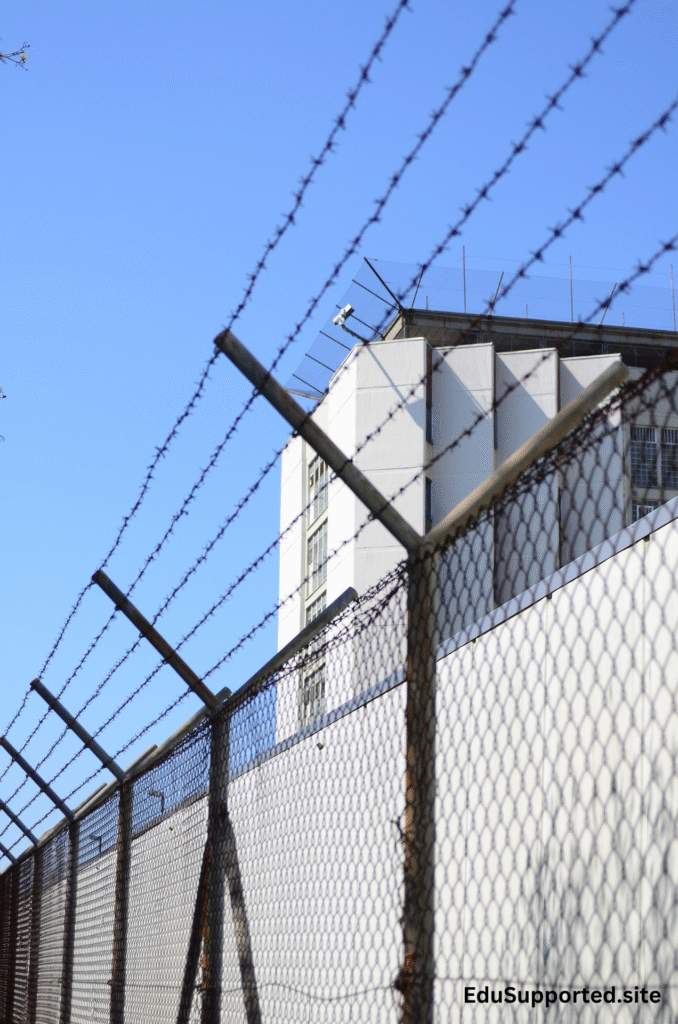Understanding the Legal and Financial Consequences of Not Paying Back Student Loans
Concern about student loan debt affects millions of Americans. The ever-increasing cost of higher education makes it no wonder that many borrowers struggle to meet their payment obligations. Could defaulting on a student loan result in incarceration? One of the most typical concerns voiced by debtors is this. As monetary pressures rise, it’s a reasonable concern. No, you cannot go to jail only for not paying your student loans. That’s the quick answer. However, there are nuances to the reality that need to be explored further.
No, There Is No Criminal Penalty for Failing to Repay a Student Loan
America did away with debtors’ prisons in the nineteenth century. This rules out the possibility of imprisonment as a means to pay off debt, whether public or private school-related. Skipping payments on your student loans is not a crime. That doesn’t mean there won’t be any consequences, either.
People Think You Can Go to Jail for Not Paying Your Student Loans
A widespread misunderstanding about the judicial system is that jail time may ensue from failing to repay student loans. Problems with student loans might lead to borrowers having to appear in court. Failure to appear in court or to follow court instructions may result in a finding of contempt of court and possible jail term. Nonetheless, this is due to the violation with a court order and has nothing to do with the student loan obligation.
If a private lender sues you and wins, the court could have you show up for a debtor’s examination or divulge your financial data. You run the risk of being arrested and served with a bench warrant if you fail to appear. The past-due obligation is irrelevant; the issue here is willful disobedience to a court order.
Evaluation of Public and Private Student Loans
When discussing the consequences from a legal standpoint, it is essential to distinguish between private and public student loans:
-
Forgiveness, deferment, forbearance, and income-driven repayment schemes are some of the benefits offered by federal student loans. The federal government can collect taxes effectively, but they can’t lock you up just because you haven’t paid.
-
There are fewer repayment options for private student loans given by banks and other private lenders. If you can’t pay back their loans, private lenders can sue you, but they can’t put you in prison only for that.
What Happens If You Don’t Pay Back Your Student Loans?
You are not immune to jail time for failing to repay student loans, but it is not to say that you are exempt either. The following may happen if you stop making payments:
1. Faulty Credit Reports
Your payment history is a major factor in determining your credit score. Missing payments on your student loans might lower your credit score, making it harder to get loans, credit cards, or even a lease in the future.
2. Loans That Have Expired
To be considered in default on a federal student loan, nonpayment must continue for at least 270 days, or around nine months. Private loans have different due dates. Once in default, the whole sum may become immediately due.
3. Salary Reimbursement
Without resorting to legal action, the federal government may garnish your wages in order to repay your federal student loans. They may also take money out of your paycheck or garnish your Social Security benefits.
4. Collection Costs
Collection agencies might tack on fees that significantly increase your outstanding balance. You should be aware that in some cases, collection expenses might reach 25% of the entire amount of the loan.
5. Legal Cases and Rulings
Private lenders may pursue legal action to recoup their loans. If they win, the court could authorize the seizure of funds from bank accounts or the garnishment of wages. Since this is a civil suit and not a criminal one, jail time cannot be considered as a remedy for the debt.
Is Going to Jail Ever an Option?
Nonpayment does not automatically lead to jail time; nonetheless, there are a number of scenarios in which you could violate the law:
1. Ignoring Orders from the Court
If you fail to appear for court sessions or ignore a court summons while being sued, a judge may issue a bench warrant. Because of this, you run the risk of being arrested. Always follow the letter of the law and comply with court rulings; that is the most important takeaway.
2. Secrecy or Unlawful Action
Falsifying information on a loan application or submitting an application in someone else’s name are examples of fraudulent acts that might lead to legal consequences. Not only is it unlawful, but it also qualifies as nonpayment.
3. Not Taking the Law Seriously
If you refuse to comply with a court order to attend a debtor’s examination or provide information, you might be held in contempt. This has more to do with defying a court order than the debt itself, although it still carries the potential for fines and jail time.
Steps to Take in the Event That You Cannot Pay Your Student Loans
The worst thing to do if you’re experiencing problems making payments is to ignore the situation. Several options are available:
1. Contact the People Handling Your Loan
Postponement, forbearance, and income-driven repayment plans are options provided by federal loan servicers. Your payments may be temporarily decreased or halted due to this.
2. Fill Out Applications for the Forgiveness Program
Teacher Loan Forgiveness and Public Service Loan Forgiveness (PSLF) are programs that certain federal debtors may be qualified for, depending on their profession and payment history.
3. Rehabilitate or Consolidate
If your debts are past due, you may be eligible for debt rehabilitation or consolidation. If you’re having trouble with wage garnishments, these solutions may help get your account back in good standing.
4. Hold Private Negotiations with Lenders
Some private lenders may be willing to negotiate a settlement or provide hardship programs, even if they are less amenable overall. Get the deal down on paper.
5. Evaluate the Role of Legal Counsel
Anyone who is the subject of aggressive collection tactics or is the subject of a lawsuit should consult with a consumer protection attorney. Some rights or defenses may be to your advantage.
See What You’re Entitled To
Under the Fair Debt Collection Practices Act (FDCPA), you are safeguarded against harassing or abusive collection tactics. Collectors for student loans cannot intimidate, deceive, or threaten you with jail time.
Should you feel that your rights have been violated, you have the option to file a complaint with either your state’s attorney general’s office or the Consumer Financial Protection Bureau (CFPB).
In Sum, Incarceration Is Not a Means to an End (the Collection of Debt)
Going back to the original topic, might not paying off student loans lead to incarceration? Absolutely not, and the debt is only one of many reasons why. But if you defy court orders, commit fraud, or do anything else criminal related to the loan, you can end yourself in hot water. Knowing your options and taking the initiative are of the utmost importance.
The legal system does not consider student loan nonpayment to be unlawful; yet, there are severe financial consequences. Your financial stability might be adversely affected for an extended period due to ruined credit, wage garnishment, and continuous collection efforts. Do not wait until it is too late to take precautions.
